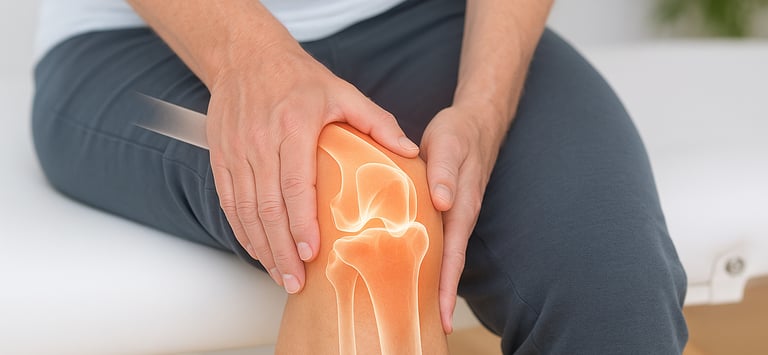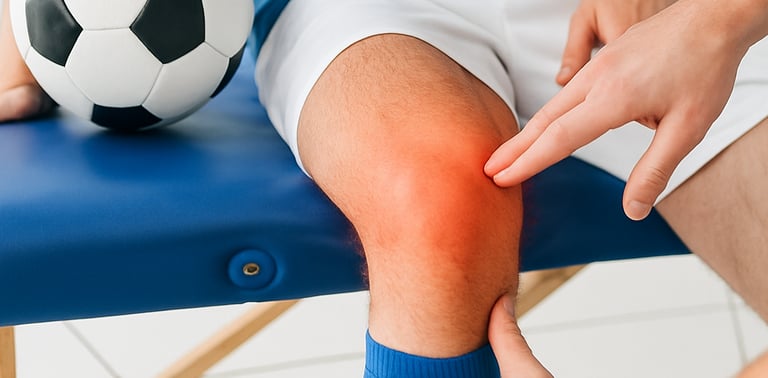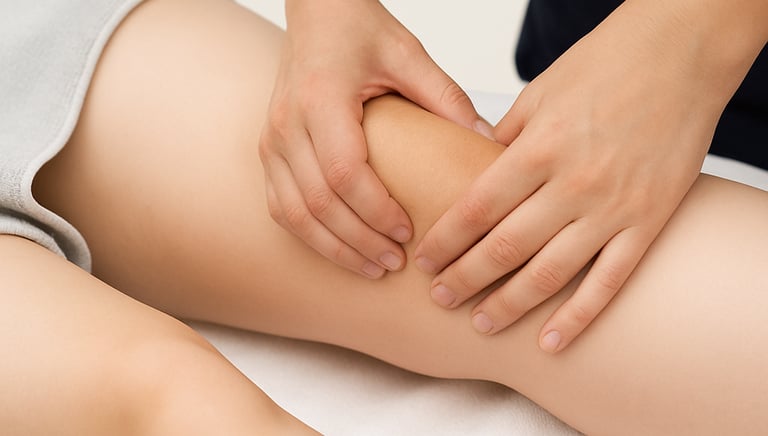Knee pain is one of the most common musculoskeletal complaints, affecting people of all ages — from young athletes to the elderly. Whether caused by an injury, arthritis, or poor posture, chronic or acute knee pain can interfere with walking, climbing stairs, exercising, and even sleeping.
At Myo Physio at Home, we offer expert home-based physiotherapy in Gurugram and Delhi NCR to help you recover from knee pain without the hassle of clinic visits.
Understanding the Knee Joint
The knee is a complex joint made up of:
Bones (femur, tibia, patella)
Cartilage (menisci)
Ligaments (ACL, PCL, MCL, LCL)
Tendons and muscles
Due to its structural complexity and weight-bearing role, the knee is prone to both acute injuries and degenerative conditions.
Common Causes of Knee Pain
Injuries
Ligament injuries (ACL, MCL, LCL tears)
Meniscus tear
Patellar dislocation or subluxation
Fractures around the knee joint
Degenerative Conditions
Osteoarthritis (age-related wear and tear)
Rheumatoid arthritis (inflammatory condition)
Patellofemoral pain syndrome (runner’s knee)
Chondromalacia patellae (softening of cartilage under kneecap)
Biomechanical & Lifestyle Factors
Overuse or repetitive stress (running, jumping)
Flat feet or improper footwear
Poor posture or walking pattern
Obesity (increased joint load)
Symptoms of Knee Pain
Knee pain can vary in severity and nature, depending on the underlying cause. Common symptoms include:
Constant or intermittent pain in the front, sides, or back of the knee
Swelling or stiffness, especially after activity or prolonged sitting
Grinding, clicking, or popping sensations
Instability or giving way of the knee
Difficulty with bending, squatting, or climbing stairs
Best Knee Pain Treatment
- in Gurugram & Delhi NCR




Diagnosis: Getting to the Root of the Pain
At Myo Physio at Home, we perform a detailed home-based clinical evaluation, which includes:
Functional movement testing
Joint mobility and muscle strength assessment
Posture and gait analysis
Special tests for ligaments, meniscus, and alignment
Imaging like X-rays or MRIs may be recommended if a serious injury or structural issue is suspected.
Treatment Options for Knee Pain
Most knee pain cases respond well to non-surgical, conservative treatment. Surgery is typically reserved for major injuries or advanced arthritis.
Non-Surgical Treatment
Rest and activity modification
Cold or heat therapy
Bracing or taping for support
Structured physiotherapy
Home Physiotherapy for Knee Pain: Myo Physio at Home Approach
Our team brings hospital-grade care to your doorstep, focusing on pain relief, joint function restoration, and long-term prevention.
Phase-Wise Rehab Plan
Phase 1: Pain Relief & Initial Mobility
Ice/heat applications
Gentle range-of-motion exercises
Isometric muscle activation (quads, hamstrings)
Phase 2: Strength & Stability
Progressive strengthening for surrounding muscles
Glute, hip, and core training
Balance and proprioception drills
Phase 3: Functional Rehabilitation
Gait training
Sport- or activity-specific movement patterns
Endurance and coordination drills
All sessions are tailored to your age, activity level, and diagnosis, ensuring safe and effective recovery in your home environment.


How Preventing Knee Pain?
Warm up before workouts and cool down after
Strengthen the quads, hamstrings, glutes, and calves
Use proper techniques for lifting, walking, and running
Avoid prolonged sitting or standing
Maintain a healthy weight to reduce joint load
Address foot alignment or postural imbalances early
FAQs
Q1: Should I exercise if I have knee pain?
A: Yes, but only under the guidance of a physiotherapist. Specific exercises can actually relieve pain and improve joint function.
Q2: When should I worry about knee pain?
A: If pain is severe, persistent, associated with swelling, instability, or limits daily activities, seek professional help immediately.
Q3: Can physiotherapy prevent knee replacement surgery?
A: In many cases, yes — especially for early to moderate osteoarthritis. A good rehab plan can delay or avoid surgery.
Q4: Is home physiotherapy effective for knee rehab?
A: Absolutely. It allows personalized treatment, better compliance, and a relaxed recovery environment.
Get in touch
Quick Links
Health
Recovery
myophysio312@gmail.com
+919811527312
+918810530087
© 2025. All rights reserved. - Myo Physio At Home


